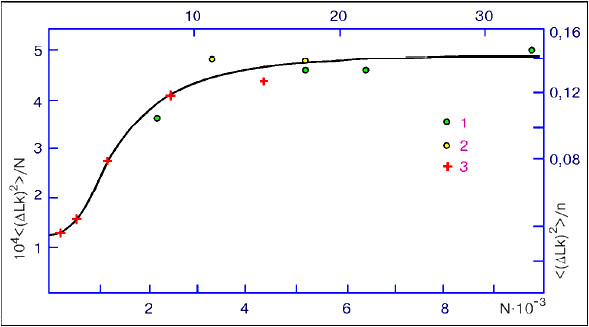Gene: [03p213/GPX1] glutathione peroxidase 1 (cellular); hemolytic anemia (glutathione peroxidase 1 deficiency);
|
FUN |
Systematic name: glutathione:hydrogen peroxide oxidoreductase. The reaction catalyzed: 2 glutathione + H(2)O(2) = oxidized glutathione + 2 H(2)O." |
|
PAT |
Hemolytic disease of newborns with pronounced hyperbilirubinemia and red blood cell fragments (Heinz's bodies) in peripheral blood was described. It is thought to be related to a partial deficiency of erythrocyte glutathione peroxidase 1. Usually the anemia is compensated by the age of 3 months, although the enzyme deficiency remains. In the families of probands, some their sibs exhibit a similar clinical pattern. The parents are mostly healthy, although sometimes both may have decreased glutathione peroxidase activity; one of the parents may have a history of neonatal icterus." |
|
POP |
An allele determining decreased glutathione peroxidase 1 level is found at frequency of 0.18 in populations of USA and North Europe, and at frequency of 0.56 among Ashkenazi Jews. A minor allele GPX1/2 is found at frequency of 0.054 in some ethnic groups in Africa. It determines an increased level of glutathione peroxidase 1 in 2-1 heterozygotes as compared to normal 1-1 homozygotes. The spreading of this allele in malaria endemic regions is supposed to be accounted for by a selective advantage of heterozygotes." |
|
HET |
Phenocopies of the transitory glutathione peroxidase 1 deficiency exist. These are caused by the disturbances in the selenium metabolism (e.g., during pregnancy), since selenium is involved in the catalytic center of the enzyme, as Se-Cys, influencing not only the enzymatic activity, but also (according to Takahashi-1986) the enzyme synthesis in red blood cells." |
|
POL |
[1] Gene-specific DNA probe phGPX-20/2A1 (a 557 bp fragment) has
been cloned at EcoRI site in the plasmid pBR322.
RFLP system:
[1] HaeIII A-RFLP (Murray-1987; Probe [1]): allele A1= 650 bp/(popul freq= 0.25); allele A2= 600/(0.75); Constant Band = 550 bp" |
|
HIS |
This marker was indicated in the MIM-88 catalogue as GPX1 deficiency, under the number 23170 in the group of autosomal recessive phenotypes. This number was excluded from the MIM-90 catalogue, and the description of the marker was included in the group of codominant markers (MIM:138320)." |
|
REL |
GEM:14q241/GPX2; GEM:05q3/GPX3; GEM:19^/GPX4; GEM:00.0/GPX5; GEM:00.0/GPX6; GEM:00.0/GPX7." |
|
PSG |
GEM:0X^/GPXP1, GEM:21^/GPXP2. |
|
REF |
FOG,POP "Beutler E, West: AJHG, 26, 255-258, 1974a FOG,POP "Beutler E &: Ann Hum Genet, 38, 163-169, 1974b FOG,POP "Board PG: AJHG, 35, 914-918, 1983 PAT,PHE "Boivin &: Enzym Biol Clin, 10, 68-80, 1969 COD,EXP "Chada &: Blood, 74, N7, 2535-2541, 1989 PAT,MOP "Cohen &: Am J Clin Nutr, 41, 735-747, 1985 COD,SEQ "Dunn DK &: Biochem Soc Trans, 17, 1128-1129, 1989 LOC,FAG "Fidzianska E: Genet Polon, 25, N4, 451-457, 1984 FOG,POP "Golan &: Hum Hered, 30, 136-141, 1980 CLO,SEQ "Ishida K &: NAR, 15, 10051, 1987 LOC,CYG "Johannsmann R &: Hum Genet, 56, 361-363, 1981 LOC "Kiss C &: CCG, 79, N3-4, 228-230, 1997 LOC,MOL "Le Beau &: CCG, 51, (HGM10), 1030, 1989 LOC,FAG,EAG "McBride OW &: BioFactors, 1, 285-292, 1988 FOG,POP "Meera Khan &: AJHG, 38, 712-723, 1986 FOG,POP "Meera Khan &: Hum Genet, 66, 352-355, 1984 CLO,SEQ "Mullenbach GT &: Protein Engin, 2, 239-?, 1988 CLO,SEQ "Mullenbach GT &: NAR, 15, N13, 5484, 1987 PAT,PHE "Necheles TF &: Blood, 33, 164-169, 1969 PAT,PHE "Nishimura &: Tohoku J Exp Med, 108, 207-218, 1972 PAT,MOP "Perona &: Brit J Haematol, 42, 567-574, 1979 CLO,SEQ "Sukenaga Y &: NAR, 15, 7178, 1987 PAT,MOP "Takahashi &: J Clin Invest, 77, 1402-1404, 1986 LOC,CYG "Wijnen LM &: CCG, 22, (HGM4), 232-238, 1978 |
|
KEY |
hem, aac, xen |
|
CLA |
coding, basic |
|
LOC |
03 p21.3 |
|
MIM |
MIM: 138320 |
|
EZN |
ENZYME: 1.11.1.9 |
Смотрите также:

